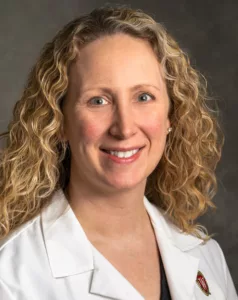Bandage uses body’s own energy to speed wound healing
UW–Madison researchers have developed a bandage that uses the body’s own electrical energy to speed wound healing.
Amy Kind, MD, PhD, will serve as the University of Wisconsin School of Medicine and Public Health’s inaugural associate dean for social health sciences and programs. Kind is a professor of medicine and an international leader in the field of health disparities research.
In this new role Kind will oversee the school’s initiatives focused on identifying factors leading to health differences that are closely linked with social, economic and/or environmental disadvantage. These initiatives include the Center for Health Disparities Research, the Wisconsin Partnership Program and the Milwaukee-based Center for Community Engagement and Health Partnerships.
By bringing these related programs under one leader, Kind will work to advance their collaboration, impact, innovation, capacity and sustainability. Her appointment in this new role began Dec. 1.
“I am very excited about this role and the opportunity to help develop cutting-edge new approaches, accelerate new initiatives and collaborations within our institution and beyond, and advance the storied history of excellence in social health science that goes back to the very roots of our school,” said Kind.

Health disparities are preventable differences in the burden of disease, and in the access and quality of health care, due to physical, environmental and social exposures that people face. Researchers in the field study how the physical environment and social conditions intersect to influence an individual’s health. The school has a strong tradition of research and service designed to understand the mechanisms that underlie health disparities and eliminate them.
Kind will work with others throughout the school to advance a focus on health disparities in the campus’s research, education, clinical and public health work. She will also facilitate collaborations between basic, clinical and social scientists and will serve as a resource for researchers new to the field.
“We are examining how social factors influence our biology to produce disease,” Kind said. “We are identifying the mechanisms that drive disparities to develop better approaches to eliminating them — new cures, therapies, clinical interventions and social policy. I look forward to leading efforts to grow our capacity for this important work across our many stakeholders.”
Kind’s clinical interests include Alzheimer’s disease and related dementias. Her research works to identify drivers of health disparities, including studies of the social exposome — an emerging term for the sum of social and environmental exposures people experience during their lifetime — and designing interventions to improve patient care in low-resource areas. In 2021, she led the team that founded the Center for Health Disparities Research at UW–Madison.
Kind also led the development of The Neighborhood Atlas in 2018. This resource examines the health impacts of physical, social and environmental factors by visualizing data at the neighborhood level. The atlas has been accessed more than 500,000 times and been used by health systems, policy makers, researchers and industry leaders to guide real world decisions including COVID-19 therapy and vaccine targeting.
“Dr. Kind is a remarkably strong and effective leader in the field of health disparities research,” said Robert N. Golden, MD, dean of the UW School of Medicine and Public Health. “She possesses incredible depth and breadth of expertise in areas that are vitally important to the advancement of our school’s vision of health equity for all.”